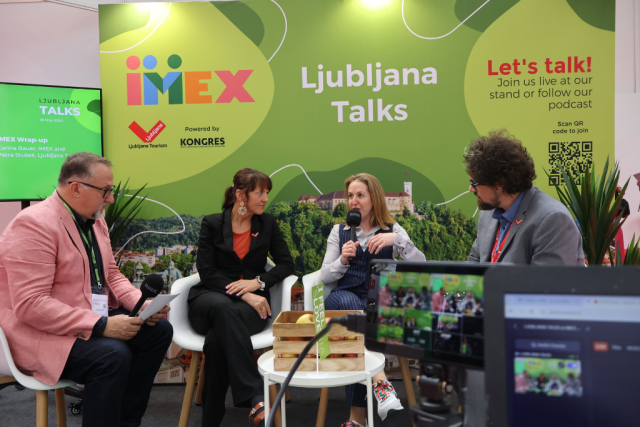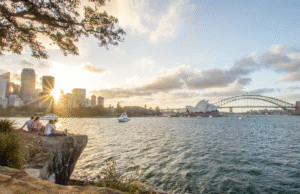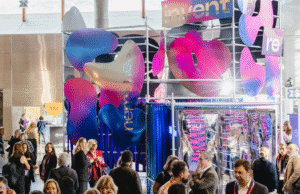The second day of Ljubljana Talks at IMEX Frankfurt was a resounding success, featuring captivating discussions with esteemed guests. Hosted by the seasoned duo of Gorazd Čad and Jan Oršič, it was a day filled with enlightening dialogue and valuable insights.
Ljubljana Talks’ Wednesday programme at IMEX 2024 kicked off with Flavie de Bueil from City Destinations Alliance who started the talk by addressing the importance of collaboration in the meetings industry. She touched upon the issues of sustainability and AI technology and how there’s still a lot of work to be done when it comes to the tools which help measure the industry’s impact on the environment. Flavie de Bueil concluded her talk by speaking about her ongoing projects, collaboration with other organisations and their efforts to better the cities.
“Our core business is really to make our cities better places to live. We want to keep our community strong. […] We try to create better experiences for our tourists, whether they come for leisure or business but also for the residents because a city that is more liveable and is more tailor-made for any kind of people we want to have on this stage. We want to improve our destination.”
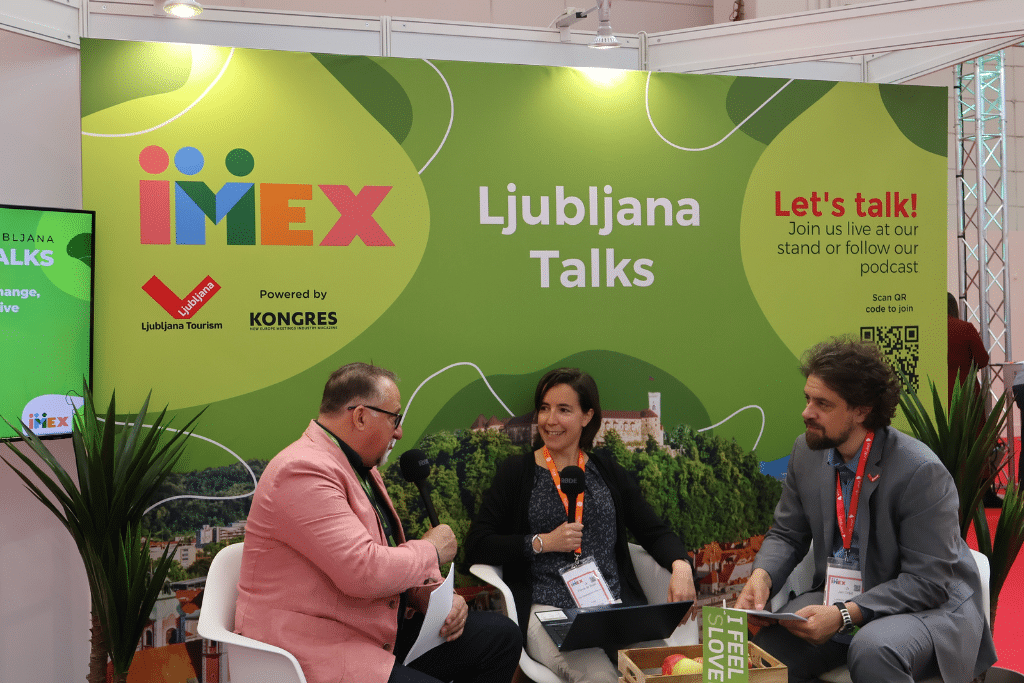
Our second talk of the day started with Richard Crawford’s personal journey from Glasgow to Virginia, highlighting the differences between the two places. He continues with the topic of work vs pleasure balance and how he thinks being happy at your job is one of the most important things in life, and he’s happy to be able to say his job is almost like a hobby. Richard concluded the talk with a few insights on how he chooses his travelling destinations – by talking to people and by trying not to contribute to overtourism but rather try to visit eco-friendly and sustainable hidden spots.

Our third guest, Eszter Mattiassich-Aszody from Siemens, opened the talk with the thought of creativity as the driving force of the event industry. That, paired with high tech, and strategic thinking ensure memorable events. She went on to express concerns about AI eliminating the brain factor of the event planning but said she hopes that AI will develop in a way that eliminates all repetitive, boring tasks. She finished off her talk with a few examples of comparison between how business runs in Germany, where everything is methodical and discipline-driven, and Australia, which is more laid back in that sense.

Our fourth guest Bettina Reventlow-Mourier opened her session by talking about the key to Danish success, which she believes is innovating through play, curiosity, and through always seeking new knowledge. She went on to discuss the problem of defining the industry as a whole, and the importance of human connection while still looking out for the environment – the meet in the most sustainable way possible. She finished off with an optimistic outlook on the future of the industry.
“COVID probably made it very clear that yes, we can have meetings virtually. But meeting in person will continue to be extremely valuable. And we understand much better the enormous importance for human beings to be physically near each other in communication and building trust and great partnerships and collaborating around projects.”
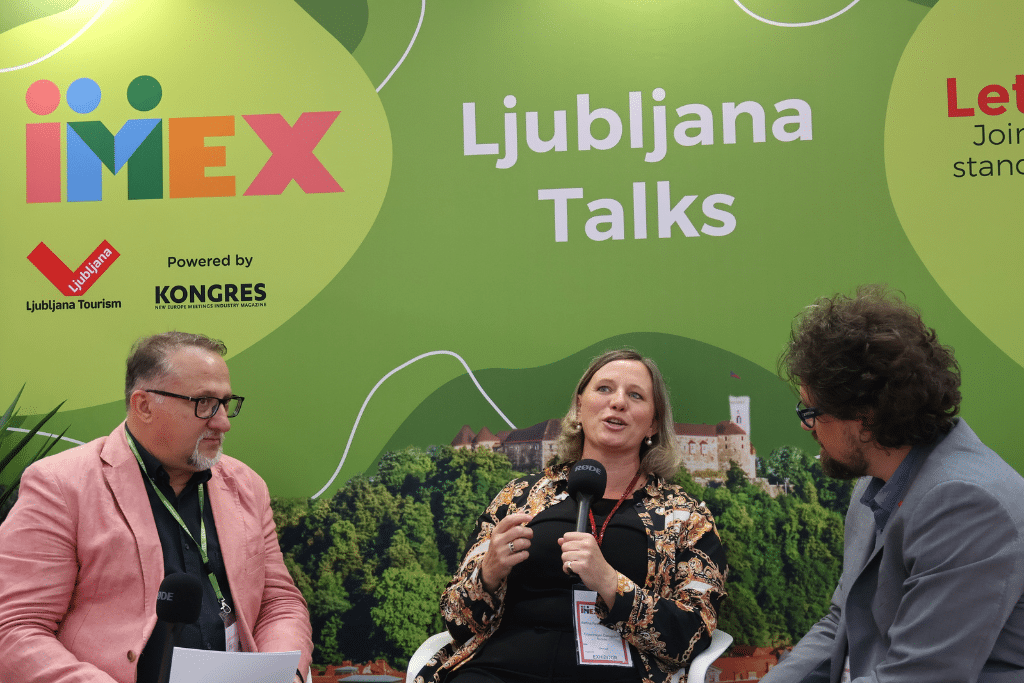
Our next guest, David Pobjecky’s most important talking points at Ljubljana talks were the popularity and promotion of Bratislava and its efforts towards sustainability through the elimination cars in the city centre. He highlighted the importance of Bratislava being a walkable city as well as easily accessible by public transport from bigger cities, like Vienna.
Natascha Ringerthaler from the Salzburg Convention Bureau came to the stand to talk to Gorazd and Jan first about the important links between Salzburg and Ljubljana and then about the effectiveness of developing the city through experiential interaction and sharing of ideas. Drawing attention to Salzburg’s rich cultural heritage, she highlighted how the city uses this heritage to attract leisure travellers and business representatives, fostering diversified tourism. She finished off by giving her two cents on the industry’s subsidies and how they effect event destinations.
Natascha on why she’s in this business: “I simply just can’t sit in an office all day, nine to five, and then all week long. I love to be outside and I love to bring people to my hometown, to my home destination so they can get the same feel about the destination and the mountains as I do.”

Afterwards, Ljubljana Talks welcomed two ladies Carina Bauer, the CEO of IMEX, and Petra Stušek, head of Ljubljana Tourism. Carina spoke about the importance of experience design in engaging all the senses and creating personalized areas. Petra emphasised the importance of the human touch in events, citing leadership and empathy as key qualities for success.
On the subject of sustainability and regulation in the event industry, Carina stated “I think it’s critical not just for the industry as a whole to really understand the need to look at sustainability much more realistically.” She continued to explain that the only things at IMEX that have single-use plastic are the small booth stickers with the numbers which took years to achieve.
Regarding the ESRS standards, Petra commented “I personally find it a little bit sad that we need to be regulated, that we start to think that it’s a groundbreaking change for the industry, and it’s not like really genuinely coming from inside.”
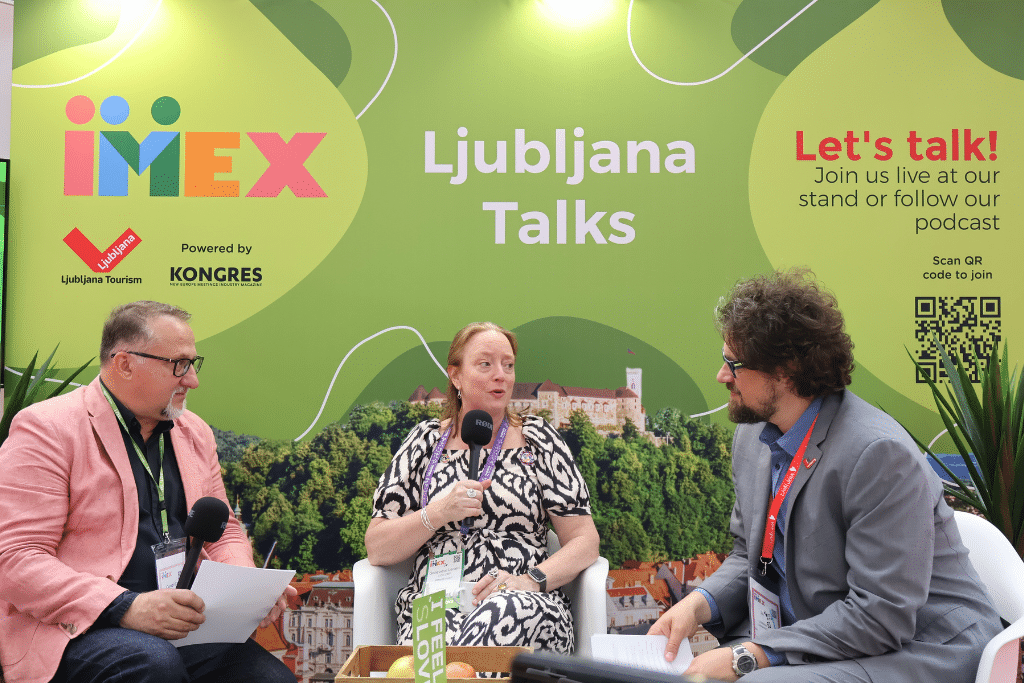
With that, the second day of Ljubljana Talks ended. Join the third day of Ljubljana Talks at IMEX Frankfurt tomorrow via the following link https://kongres-magazine.eu/live/.


